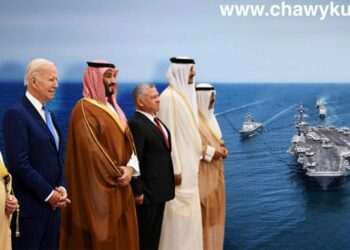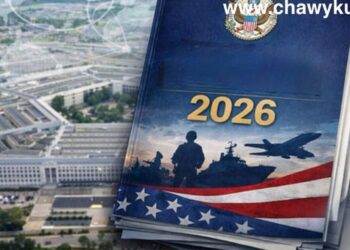The steps taken by the Trump Administration in the arena of foreign trade relations and their accompanying rhetoric have raised questions concerning whether the forceful return to economic nationalism marks the end of the liberal order whose formation and expansion were overseen by the United States after the Second World War. This order revolved around the notions of the free market and free trade, which were fostered within the context of what came to be known as the Washington consensus and the emergence of neoliberalism beginning in the late 1970s, and around the political values of liberal peace and its accompanying normative discourse. If Trumpism is the manifestation of a transitional phase or an attempt by the United States to reposition itself in the face of China’s rise and the sense that the institutions of the global order once supported by the United States have begun to operate at cross-purposes with US interests, then the Trump Administration’s economic nationalist policies and mercantile bent will result in the dissolution of alliances and realignments, as well as, possibly, the emergence of new political, economic and military conflicts.
First: The Collapse of the Liberal Order
Many observers 1 point to the collapse of the foundations of the liberal order that was built by the United States itself after World War II, at which time it formed a group of institutions and alliances and led the drafting of charters and treaties that institutionalized American centrality. This consolidated an age of “Pax Americana” and helped to formulate the value system and practices of the liberal political and economic order. Yet, despite the well-known US tendency to apply double standards when implementing its declared values on many occasions, the most recent of which was the war on Gaza, what is happening today under the Trump Administration seems both qualitatively and quantitatively different. In his dealings with the norms of the liberal order, Trump does not simply deviate but explicitly declares that he has abandoned these values. He employs the language of populist nationalism and takes measures that restore a form of expansionist mercantilism starting with the US closest allies and partners, such as Canada and the European Union.
The Trump Administration’s internal discourse, which aims to affirm “Americanism” as a privilege, remove the “undesirables” represented by illegal immigrants and confront what the Administration and its supporters refer to disparagingly as “woke” culture—which they accuse of moral derangement, gender fluidity, pro-minority bias that “marginalization of the white majority,” and naive humanism—works for a return to an imagined past governed by fixed hierarchies and values. As for its external discourse, it accuses its allies (even before its adversaries) of abusing US goodwill (or, as Trump prefers to call it, naivety and stupidity), and of establishing political, commercial and military ties that harm US interests. The nationalist trend on the domestic front centers around returning to the “bright” past and ridding ourselves of the burden of the weak, the “deficient” and the “deranged” in favor of the certainty of superiority. This trend is complemented in the foreign arena by a proclivity for bullying and intimidating and making “examples” of weaker actors in the hopes of terrorizing more powerful ones, and with such a fondness for spectacle and excessive self-praise that it becomes very difficult to distinguish between the Real and the Theatrical, while the latter takes precedence over reality and acts to reshape it.
Students of US foreign policy will know, of course, that it has tended to fluctuate between internationalism and isolationism. Sometimes, the US has sought to dominate global affairs while tempering its hegemonic ambitions with universal values and the compromises necessary to maintain broad alliances. At other times, it has attempted to insulate itself from global crises and distance itself as “an exceptional nation”, unaffected by the world’s problems. This exceptionalism is sometimes used to justify domination, and at other times to rationalize isolation. An aspect of Trumpism that is supported by his populist nationalist followers is a penchant for withdrawal from the outside world tinged with suspicion and distrust of “others,” both at home and abroad. However, this is more likely to be a rhetorical rather than an actual withdrawal; the world the United States has helped to shape since the advent of globalization is more interconnected than it was during World War II, and the nature of the pro-Trump coalition in his recent comeback would make such a withdrawal far from easy.
On the one hand, the new nationalist mercantilism is not simply a return to the past. Rather, even with its use of old tools such as tariffs and its talk of geographical expansion (which is reminiscent of “ Lebensraum”), it is motivated by the nature of current and future economic and technological competition, primarily with China. What Trump seeks to do in connection with the Panama Canal is to minimize the Chinese presence in the Americas. While he covets the island of Greenland not only because of its vast geographical area and its natural resources (which appeal to the traditional side of the mercantile mentality), but, in addition, because the United States wants to take advantage of the melting of the ice in the neighbouring maritime regions so as to be able to dominate the North Pole and limit the naval presence of Russia, which itself wants to make use of the new climatic conditions to activate trade and military naval activities in the cold waters from which the ice has begun to recede. Thus, the aim appears to be a return to the past in order to win the future.
On the other hand, those who are known to some as the new oligarchs, that is, the CEOs of the major US tech corporations who lined up behind Trump at his inauguration, have economic operations all over the globe and markets that they would be hard-pressed to give up. Hence, they are wary of having to pay the price of a fierce trade war that might prompt other countries to tighten the screws on their institutions, companies, and factories. However, they might be able to profit off an alliance with Trump by using the power of the US State to improve their working conditions and activities in exchange for political and economic favours to him and his allies. The open clash thattook place soon after Trump’s inauguration between Elon Musk and the populist current of the proTrump MAGA movement over the issue of H-1B visas and work permits for foreigners classified as skilled workers was an early sign of the difficulty of going too far with nationalist populism without harming some of Trump’s techno-oligarch allies. At the same time, Musk’s crass embrace of Europe’s extremist right-wing currents, not to mention the sensitive role he has come to play domestically in scaling down and changing the composition of the federal government, may trigger powerful reactions that pave the way for the formation of a broad resistance coalition among those affected by these developments. They might even create rifts in the new Trump coalition itself. Economic nationalism does not necessarily mean isolationism. Unlike some of his supporters and MAGA ideologues, such as Steve Bannon, Trump himself is not a fully committed isolationist, but rather, an outspoken proponent of economic nationalism, and his Administration has adopted the motto of “peace through strength.”4 Therefore, his policies are unlikely to please everyone in his coalition. Moreover, the clashing priorities of the forces that make up his coalition may lead to internal conflicts, especially during the final two years of his Administration, at which time attention will turn to the issue of who Trump’s “heir” should be. On the international stage, this will be reflected in tensions between Trump’s pragmatism and his tendency to look for the “best deal,” and certain fanatical proponents of isolationism bent on non-involvement in the world’s conflicts.
II: On Trump’s Economic Plan
During his sole debate with his opponent Kamala Harris, Trump presented no integrated or clearly delineated economic plan. Rather, his comments were limited to reviewing his economic achievements during his first term in office, which, incidentally, were indistinguishable from those of his current predecessor, Joe Biden; if anything, Trump accomplished less then Biden in a number of areas. The economic issues that were most prominent in Trump’s election campaign sometimes appealed to voters’ gut-level emotions and sentiments by talking about the greatness of the United States and the need for it to maintain its commercial, productive and innovative superiority over other countries, particularly China, which he views as the United States’ most formidable economic competitor. In this connection, he threatened to impose protective tariffs on imports from countries that have a favorable balance of trade with the United States with the aim of allowing US industries to expand and replace their overseas competitors; in addition, he addressed US voters’ anxieties by stirring up their resentment over fuel prices, even though these make up less than 4 per cent of US consumers’ overall recurring spending. As for the promises he made in this regard, including a pledge to restore fuel prices to what they were nearly twenty years ago, it would be virtually impossible to fulfill them given current figures relating to the cost of oil production and considerations of supply and demand.
Following his victory in the presidential election, Trump reaffirmed his commitment to fulfilling his campaign promises. Soon thereafter, however, he turned to unveiling a series of extremely aggressive policies and initiatives, from expressing a desire to control the Panama Canal, to brazenly proposing that Canada and Greenland should both be annexed to the United States. While maximizing resources and giving priority to national interests are typical behaviours of nationalist leaders, Trump’s approach went beyond traditional nationalism. His actions revealed a scandalous disregard for all international treaties, undermining the principles of national sovereignty, and even bypassing the legal framework of the United States Constitution itself. This disregard is clearly revealed in his recent insistence on the idea of forcibly displacing the Palestinians from Gaza to Jordan and Egypt in preparation for the United States’ seizure of the Strip, and his pressure on Jordan and Egypt to abandon their firm decision to oppose this entire scheme, to which freezing the allocated assistance, as an explicit and initial form of the pressure. Even economic policies, which normally fall within the legal jurisdiction of a sovereign state, are now framed within a discourse that holds others responsible for their success. Trump’s tariff policy, in particular, represents an attempt to defy the principles of efficiency and ideal resource allocation which serve as the foundation not only for foreign trade, but also for the distribution of resources within the country itself. If the United States were able to efficiently produce the goods and services it imports, it would not rely on foreign markets to begin with. If Trump proceeds with his plans to impose hefty tariffs on Canada, Mexico, and China, the consequences will be disastrous. More than 75 per cent of Mexico’s exports are sent to the United States and around 30 per cent of Canadian exports. However, the damage will also extend significantly to the US Economy itself, since exports from these countries are a key part of the value chain for many US industries, and any disruption in their flow will have ripple effects. Moreover, some of the United States’ imports of final products depend on inputs manufactured in the United States itself, as is the case with its imports of vehicles from Mexico, 74 per cent of whose foreign content is manufactured in the United States. This is also true of vehicles manufactured in Canada and exported to the United States, a significant percentage of which are made using inputs produced in the US itself.5 The expected rise in the exchange rate of the US dollar against other currencies may make matters worse by weakening the competitiveness of US industries in global markets and enabling these countries to contain some of the possible fallout from increased customs duties on their exports to the United States. Moreover, the retaliatory measures announced by these trading partners could impact US industries. Canada is the largest single importer of US products, Mexico is the second-largest importer from the United States, and China is the third-largest global market for US exports, which renders these three countries capable of inflicting harm on US industries if they initiate countermeasures. Matters are further complicated by the fact that the US labor market lacks the capacity, in terms of size and the needed skills, to compensate for any decline in imports from these countries. Tariffs might provide sufficient margins for the growth of domestic industries. However, the uncertainty resulting from Trump’s erratic and devious approach to managing trade relations and the likelihood that these policies will fail to achieve their economic aims undermine confidence in the United States’ ability to continue with these protectionist policies. Hence, this strategy not only threatens the stability of global trade dynamics, but also harms the dynamism of the US economy itself. If President Trump is serious about relying on these policies and sees them as beneficial to the US economy, this suggests that whether intentionally or unintentionally, he is ignoring the painful experience the United States went through in the 1930s, when it thought that broad-ranging protectionist policies would revive US industries that had been severely impacted by the Great Depression. The tariffs imposed under the Smoot-Hawley Act, which were met with countermeasures by the United States’ trading partners, worsened the difficulties the US economy was experiencing, and caused major and profound harm to global trade. Trump has not even learned from the risk he took during his first term, when China imposed counter-tariffs in response to his imposition of protectionist tariffs on a number of Chinese products, which led to a major decline in US exports of vehicles, aircraft, engines, and soybeans to China, the last of which declined by nearly 75 per cent in 2018, just two years after Trump entered the White House.6 Alongside the economic nationalism Trump has adopted toward the outside world, we have chaos on the domestic front. The problem lies not only in the intensified manifestations of oligarchy during his second term, but also in the Trump Administration’s condescending treatment of the US institutional, political, and economic system, which has long provided a solid grounding for the country’s stability and soft power. His Administration’s moves to weaken independent and governmental institutions are raising legal challenges and growing debates around the limits of presidential power. Less than a month after taking office, the new president moved to close the US Agency for International Development and place it under the State Department; this radical action is a devastating blow to USAID’s independence, which was acquired via a law passed by Congress in 1998. Viewed as the political and development “face” of the United States in the outside world, USAID has been able to build solid relationships in numerous countries around the world and harness these relationships in the service of US interests and national security. Trump has granted Elon Musk, who has been tasked with what is termed “government efficiency,” near-absolute authority to enter the federal payment system responsible for transferring more than $5 trillion annually, disregarding all of the checks and balances that regulate the operation of this system.7 Meanwhile, he has begun translating his resentment towards the federal apparatus into action by launching a broad program to lay off government employees under the pretext of regulating public spending and reducing administrative waste. The program even extends to the Central Intelligence Agency (CIA), which has offered all its employees incentives to accept voluntary layoffs. This development could pose a major threat to the work of this agency, which has long engaged in intelligence and security missions, serving as an effective political tool for the United States and providing it with international security immunity. There are those who believe that the large-scale layoffs will contribute to emptying the federal apparatus and its institutions of their accumulated institutional memory in such a way that they will be unable to recover it in the future.
Third: Concerns Grow in the Halls of the US Elite
Despite the support Trump’s policies and actions enjoy within the Republican Party, US elites have begun speak out, warning of the dangers inherent in these policies and actions, which are being described as a systematic destruction of the US institutional system, a clear violation of the country’s Constitution and laws, and a brazen transfer of the powers invested in established institutions to a group of individuals who have no political or institutional experience to speak of.10 Others also believe that Trump’s current term in office and the rise of oligarchic tendencies spell the end of the period of prosperity and development in science and technology once led by the United States.11 What the United States and the world at large are going through today as a result of the Trump Administration’s policies and its undermining of the rules that have upheld the global system, including international charters and norms which previous administrations routinely violated, albeit in a less daring and more surreptitious manner, may drive the entire global system to the edge of the abyss. It may also isolate the United States from the international community to an unprecedented degree. Together with the war Trump is waging against the constitutional and institutional structures of the United States, such isolation may cause the country’s global standing to weaken and decline. Although these measures may be limited to Trump’s current four-year term, the existing situation has revealed in a most jarring manner the increasing fragility of the United States’ democratic and constitutional system through practices that were associated in the past with Third World political regimes, including that of capturing the state by bypassing the Constitution and undermining state institutions.





























































